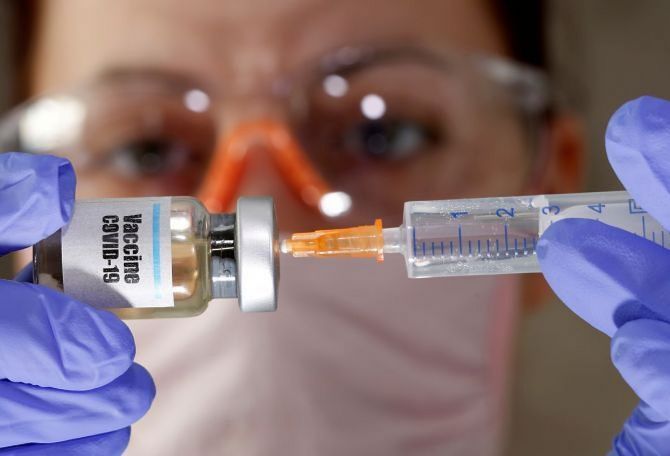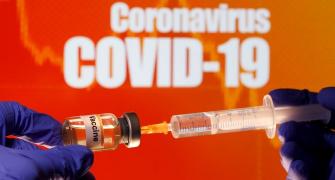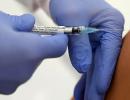The modus operandi for immunising the country’s 1.35 billion population in stages has been thrashed out in more than one meeting among top government officials in the health ministry and the Prime Minister’s Office.
Subhomoy Bhattacharjee reports.

Polling day-like arrangements for vaccine shots, celebration of Immunisation Days to enthuse people from small towns and villages to get vaccinated, and bank guarantees to companies that will supply vaccines -- these are some of the steps being finalised by the government as part of its vaccine strategy against Covid.
The modus operandi for immunising the country’s 1.35 billion population in stages has been thrashed out in more than one meeting among top government officials in the health ministry and the Prime Minister’s Office.
It has been decided that the best way to get most people vaccinated in an orderly fashion would be to mimic the tried and tested voting procedure that state and central government officials organise so successfully every other year.
In discussions with at least two top officials, Business Standard has learnt that the plan is to set up immunisation booths, possibly at the same locations as polling booths, across the country.
The list of people who will be administered the first combined shots will be drawn up from the voter list.
Matching the names of people with either their Aadhaar card or voter identity card will throw up those in different age groups, an official explained.
It then becomes easy for health workers, teachers and others involved in the exercise to reach out to them and urge them to take the shots.
This has a major advantage over delivering the vaccine at hospitals, which are few and far between even in the tier-II and -III towns.
A polling booth like arrangement, on the other hand, is something that people are familiar with and can relate to.
Along with Aadhaar, the government is also planning mobile linkages to connect with those who will get the shots.
Reminders will be sent on their mobile phones, for both the first and second doses of the vaccine.
While this is expected to work in the case of all the health workers, senior citizens without mobile phones will be reached out using the Election Commission’s tracking methods to get voters to the booths.
“In the big cities, those who are in the first line of duty or at high risk can travel to the network of government hospitals to get vaccinated. But it becomes very difficult in smaller towns,” a senior government official said. Census 2011 counts 7,935 towns and about 250,000 gram panchayats in the country.
The government is also planning to hold a national Immunisation Day to persuade those reluctant to be vaccinated to come and take the shots. Of course, many subsequent rounds of doses will be given to gradually cover the entire population of the country.










